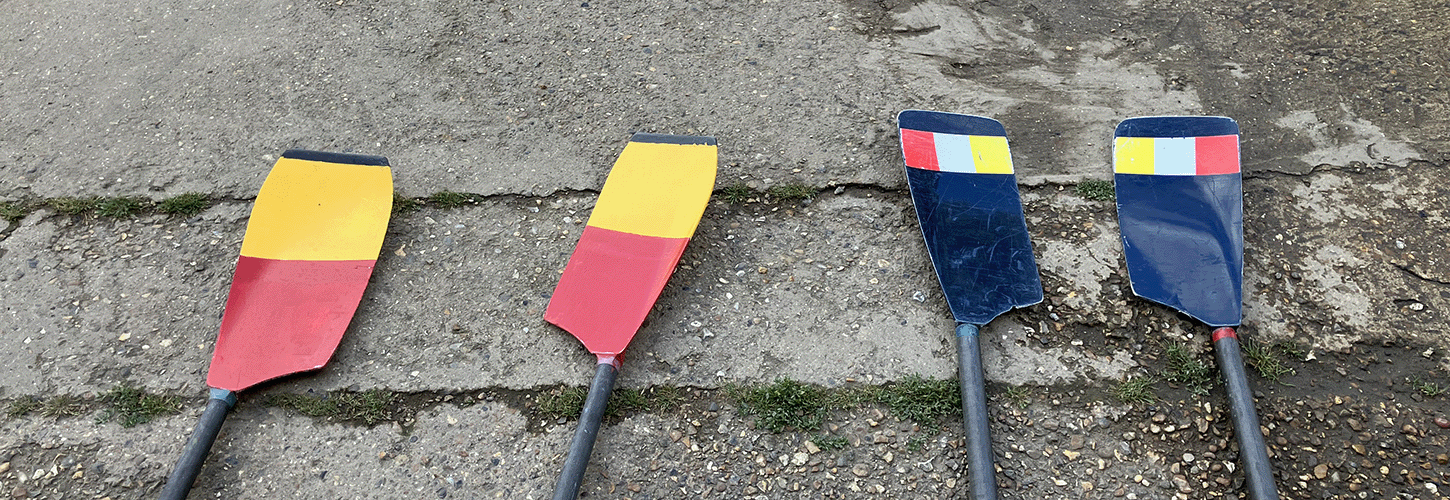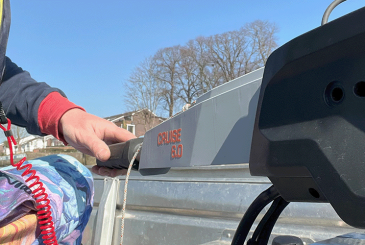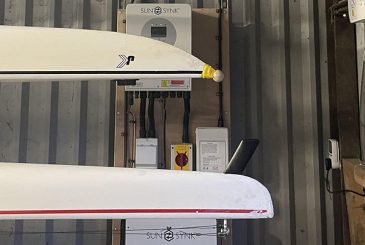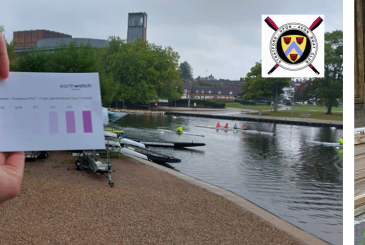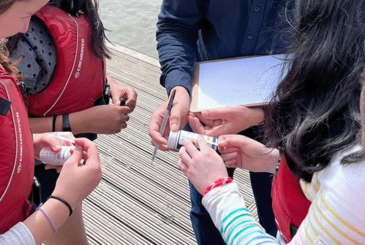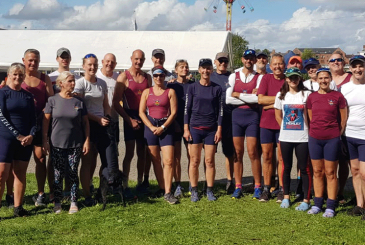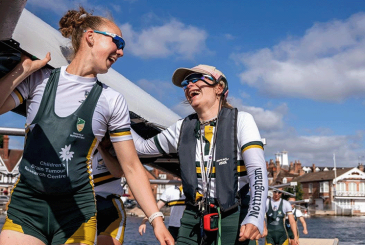Rowing is growing, but it is not always practical or cost-effective for every club to have its own premises. Instead, tenancy arrangements can help clubs find a home, or their beginnings, and bring significant benefits to all involved. Zoe Gullen looks at three case studies.
Long-term tenants at Tideway Scullers School
When Tideway Scullers School (TSS) built their boathouse in the mid-1980s, the then United Medical and Dental Schools moved in as a tenant club. Nearly 40 years later, King’s College London (KCL) is still at TSS.
The club boathouse is KCL’s water base: land training is done at the university campus in central London, and students commute to the TSS boathouse in Chiswick for outings. Under the terms of their lease, KCL has space for their two launches and an agreed number of boats. There is also a dedicated wall in the club room, for the KCL honours boards and commemorative blades.
On occasion [the three clubs] lend coxes and boats to each other.
More recently, St Paul’s Girls’ School have also become tenants, with a compound for their boats, blades and launches under the arches of the bridge.
The three clubs function as separate entities but work together to co-ordinate outing times, particularly during the busiest periods at the weekend, to share trailering for races, and on occasion to lend coxes and boats to each other.
Putting down roots: Champion of the Thames RC
Champion of the Thames RC initially had various billets around Cambridge before finding a home at Clare College’s boathouse – along with fellow tenants Clare Hall – which has allowed the club to grow. Chair Peter Twitchett says, ‘We started with one eight and for a time were nomadic, leaving it where we could. We moved to Clare 20 years ago, who allowed us to erect some outside racking – we now have in excess of twenty 20 boats.’
The club was fortunate in that one of its members was also a fellow of the college and, Peter says, ‘smoothed the passageway for us. We pay an annual rental by agreement, which suits both parties.’ In addition to the racking, the club has its own area of the boathouse with a locker and space to charge cox boxes, and there is defined use of the gym facilities, ergs and changing rooms.
‘We can provide rowing and coxing for any students who remain in Cambridge during the summer holidays’
As a town club, Champion of the Thames are able to fit their activities around student rowing, scheduling outings for early on weekend mornings when student crews are not permitted on the river. The club also offers opportunities out of term time: Peter says, ‘Our busiest time of year is July and August, when the students are no longer in residence. Another benefit is that we can provide rowing and coxing for any students who remain in Cambridge during the summer holidays.’
Partnership: Staines BC
Over the course of several decades, Staines has hosted five different clubs, and as a result has developed their tenancy model. Past tenants include Sir William Perkins’s School (SWPS), for whom Staines was a launch pad for their rowing programme and investment in their own facilities. Club president Alan Douglas says, ‘SWPS started with about one minibus of girls, and by the time they moved they were getting on for a hundred.’
Staines was also, for a time, home to Brunel University. The students paid a membership fee and racking for some boats but were integrated into the club’s senior squads to boost numbers and put out good competitive crews. However, this led to a sharp drop in senior numbers when Brunel moved out.
Learning from experience, when nearby Royal Holloway University of London moved in, they remained separate, paying to rack their boats and each student paying a ‘gym membership’ to use the land facilities.
Gordon’s School, a state boarding school in Woking with a small but growing rowing programme, is now based at Staines, as a ‘partnership club’ rather than a strict landlord/tenant relationship, which benefits both clubs.
‘Bringing the two together gives a better opportunity for more children.’
Gordon’s pupils belong to both clubs, paying full Staines membership fees and integrated into the junior squads. They train during the week and on Saturdays as part of the school timetable, but on Sundays train with the Staines juniors and coaches. Pupils are also able to continue rowing during the school holidays in a familiar setting.
This increases the pool of athletes and gives juniors the chance to train and race in crews at the right age and level. As Alan puts it, ‘Bringing the two together gives a better opportunity for more children.’ Gordon’s were keen to retain their identity as a school club, so crews race as composites where possible.
There is also a clear benefit in terms of the revenue partnerships bring to the club, though the club is careful to treat it as exceptional income rather than standard recurring income: Alan says, ‘We can’t be certain it will continue for ever: we’ve had five different clubs and relationships have ended.’ Instead, the boost to club funds ‘allows us to afford things sooner than might have been the case, or extra boats or blades’.
Short-term hosting
As well as providing a home for tenant clubs, there are also many short-term arrangements, such as providing a stop gap during building works or for training days or camps.
St Edward’s School has for many years rented outdoor racking to Oxford college crews so they can train on the longer stretch of the river at Godstow, rather than at their own boathouses on the crowded Isis near the city centre. Likewise, over the winter of 2022-23 those fortunate not to be affected by flooding on their stretches of river played host to clubs seeking somewhere to train, and Tideway clubs frequently host visiting crews wanting to get out on the course before the spring head races.
Grosvenor frequently hosts clubs for training camps and has formalised the process with a section on the club website – including a showreel of the University of Manchester’s camp – and an information pack detailing prices and options for visiting clubs to tailor the best camp for to meet their needs. Goring Gap also promote their club as a training camp venue on their website, with an option for recreational rowers to hire their fleet of touring boats, as well as welcoming individual guest rowers. Some other clubs that advertise their facilities as a base for training camps include Henley RC, Peterborough City RC, Reading RC, Upper Thames RC, Wimbleball RC, and Monmouth RC.
Conclusion
Hosting relationships need management and planning, with clearly defined tenancy agreements and appropriate rental rates. These need to take the host club’s overheads into account, such as the upkeep of the building and – when arrangements include use of boats – fleet maintenance and renewal, while ensuring that the tenant club has value for money. Ultimately, the tenancy must benefit all clubs involved, and avoid one club subsidising the other.
Clubs opening their doors helps build strong relationships across the sport, gets more people on the water and allows clubs to find a home from which they can flourish.


